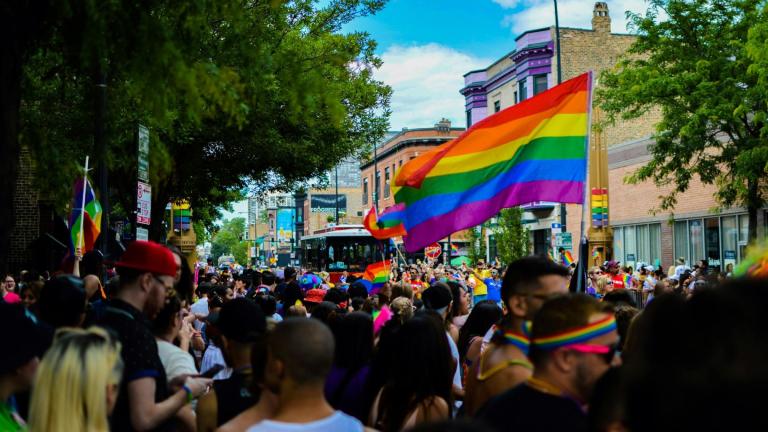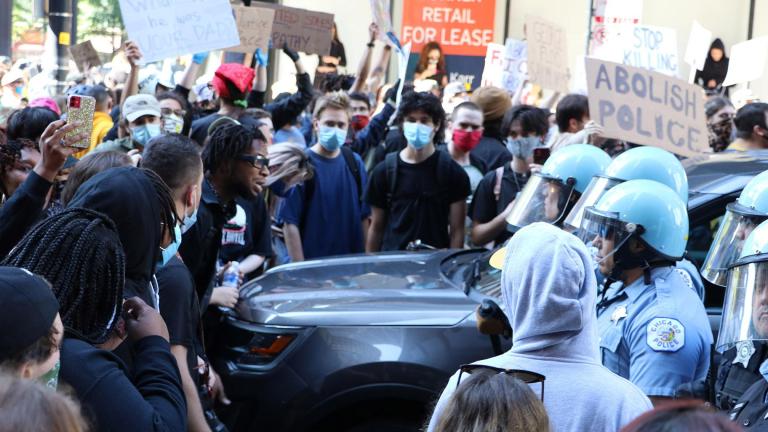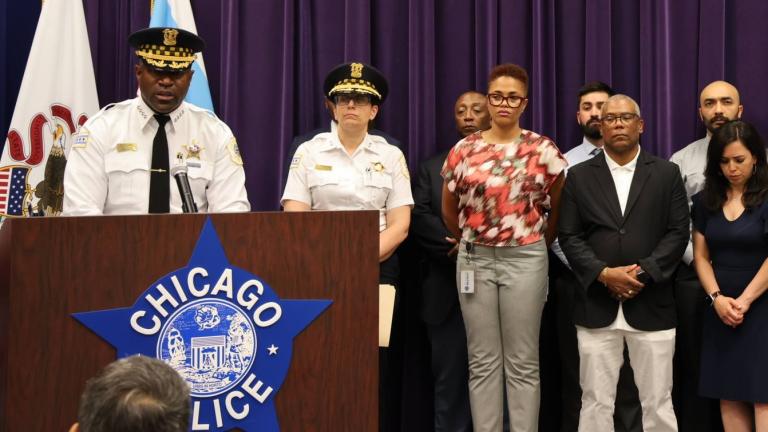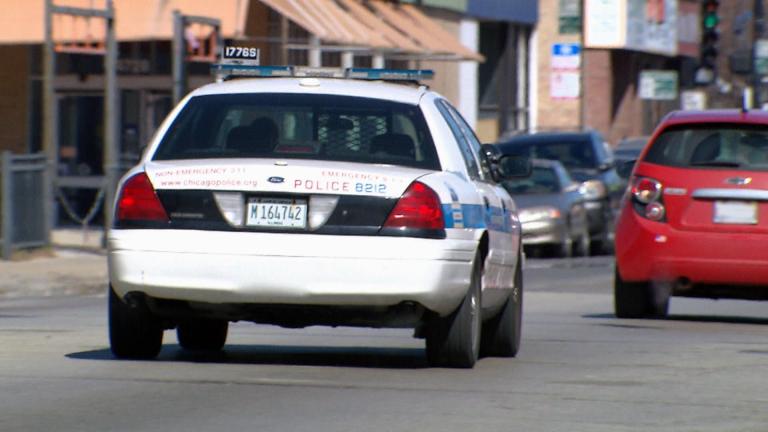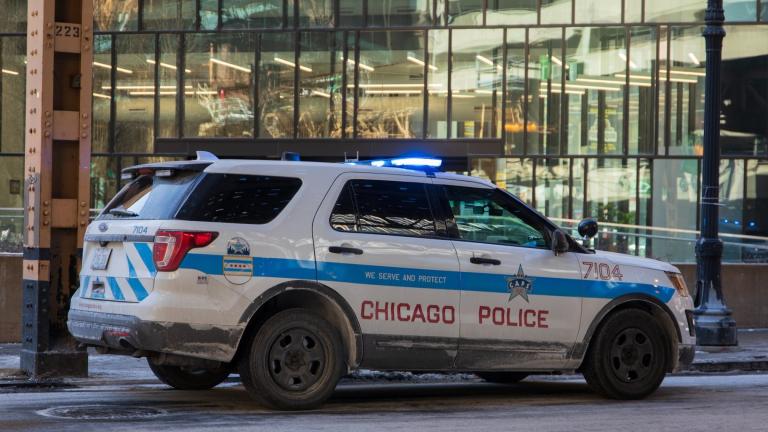It may sound like something out of a science fiction novel: a police department that uses a computer algorithm to determine how likely someone will be shot or shoot someone else. But that’s exactly what is happening at the Chicago Police Department.
The algorithm is used to rank people on what the department calls the Strategic Subject List. The higher the score, the more likely someone will be a victim of gun violence or murder someone, police say. According to police department records, the algorithm looks at “attributes of a persons [sic] criminal record, including the records of violence among criminal associates, the degree to which his criminal activities are on the rise, and the types of intensity of criminal history.”
If a person is ranked high on the department’s list, they receive a visit from police and social workers who offer help, officials say. Supporters of the list say the algorithm can help police curb the recent spike in gun violence, but critics say more information about the list needs to become public in order to judge its effectiveness.
Deputy Chief Jonathan Lewin of the Chicago Police Department said it’s more of a “model” than a “list,” and it is information that has been collected for years by law enforcement agencies.
“It’s exactly those kinds of things that we would all sit around a conference table and think are probably the kind of common sense elements that would lead to risk. So things like, have you been shot before? How many times have you been arrested for violence crime?” Lewin said on "Chicago Tonight."
“Nothing about race, nothing about gender, nothing about ethnicity, nothing about neighborhood factors in at all,” Lewin said.
But Karen Sheley, director of ACLU Illinois’s Police Practices Project, said she’s worried about transparency.
“We don’t know all the factors that can put someone on the list. And the Chicago Police Department hasn’t made public the algorithm that they use to also put people on the list. That’s a problem because we don’t know if factors, like people that you know, can put you on the list. We don’t know if factors, like contacts you’ve had with police officers and whether those contacts were legitimate, can put you on the list.”
Sheley said algorithms like the one that CPD is using have caused problems in other contexts.
“There have been studies showing that similar algorithms that predict whether someone may engage in future criminal activity have both been wrong and have been racially biased,” Sheley said.
Christopher Mallette, executive director of the Chicago Violence Reduction Strategy group, said his group emphasizes community outreach.
“We participate in custom notifications,” Malletee said. “We believe in delivering a message to individuals ... what our research shows is that it’s only about half a percent to two percent of the population that’s responsible for about 70 to 80 percent of our serious violence.”
Mallette said his group knocks on doors to inform people of their risk, and many of those names come from law enforcement.
“The engagement is not just with an individual. That happens on a day-to-day basis on the street between law enforcement and the individuals that they’re contacting. This is an engagement that’s really directed toward ‘the influentials,’ if you will, as well as the individual. There’s an offer for help at the end,” Mallette said.
But Sheley said that offer of help comes with a warning that the ACLU doesn’t like.
“In addition to the offer of help that’s extended, people are informed that they’re going to be subject to higher penalties and higher prosecution charges if they’re involved in any activity in the future. That translates to longer jail time,” Sheley said.
Sign up for our morning newsletter to get all of our stories delivered to your mailbox each weekday.
Related 'Chicago Tonight' stories
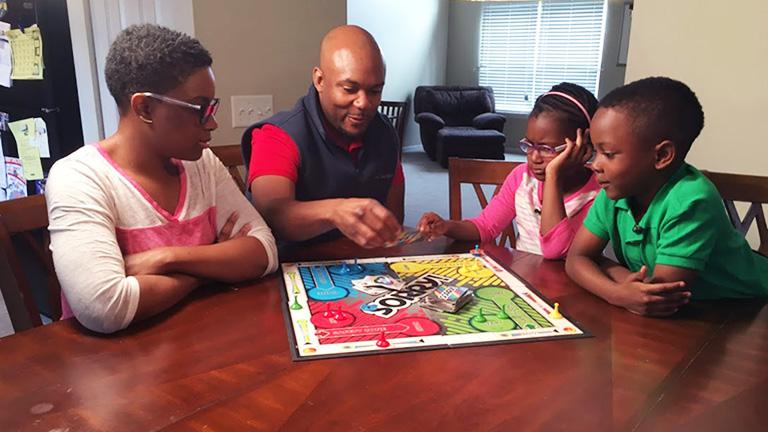 Black Flight: Some Chicago African-Americans Flee City’s Violence
Black Flight: Some Chicago African-Americans Flee City’s Violence
May 16: So far this year, Chicago has seen almost 1,300 shooting victims and 215 homicides. It is one of several major cities, including Los Angeles, Las Vegas and Nashville, to experience dramatic increases in the murder rate. The violence has led some Chicagoans to move elsewhere, seeking a safer community for their families.
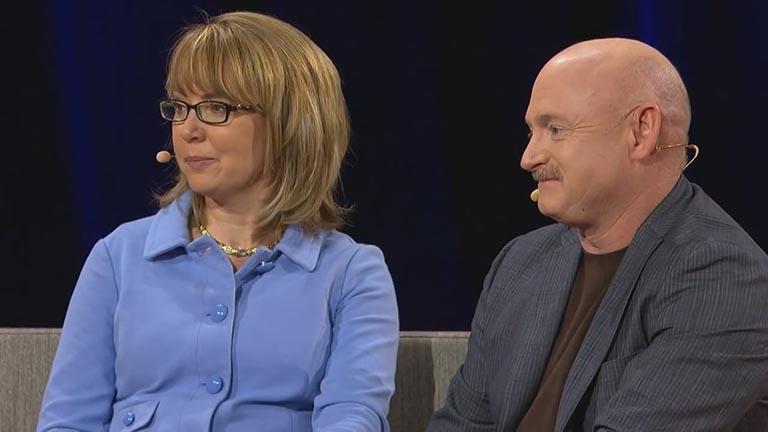 For Retired Astronaut Mark Kelly, Preventing Gun Violence Top Mission
For Retired Astronaut Mark Kelly, Preventing Gun Violence Top Mission
April 21: In 2011, then-U.S. Rep. Gabrielle Giffords was shot in the head at an event in Tuscon. Giffords survived, and now she and her husband Mark Kelly, a former NASA astronaut, are calling for solutions to prevent gun violence.
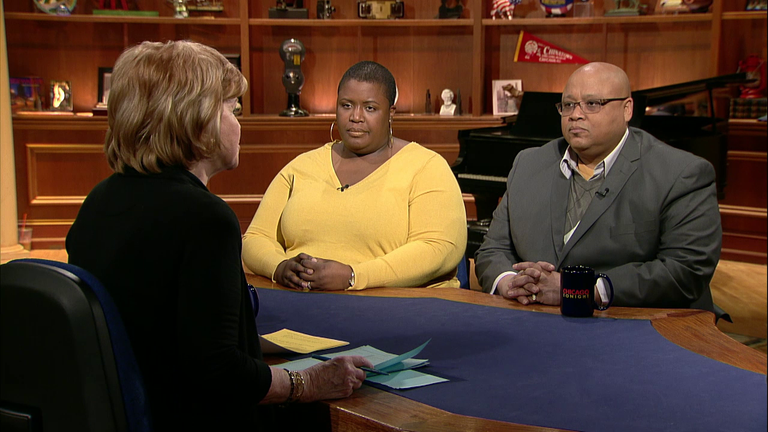 Curbing Gun Violence in Chicago and Beyond
Curbing Gun Violence in Chicago and Beyond
Jan. 13: When President Obama announced last week a series of executive actions to reduce gun violence, he was joined by the parents of Hadiya Pendleton, who was murdered in Chicago three years ago this month. The Pendletons join us to talk about curbing violence in Chicago.

